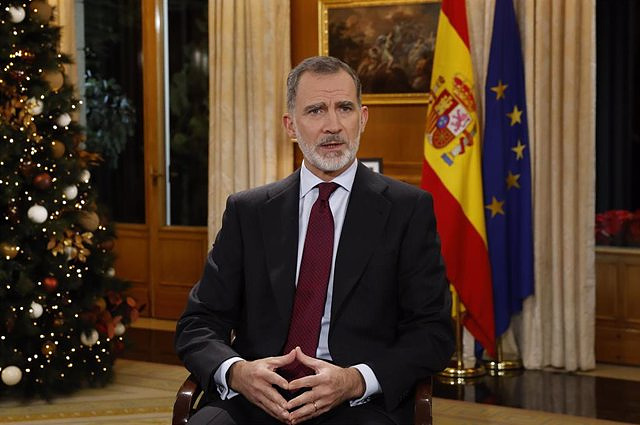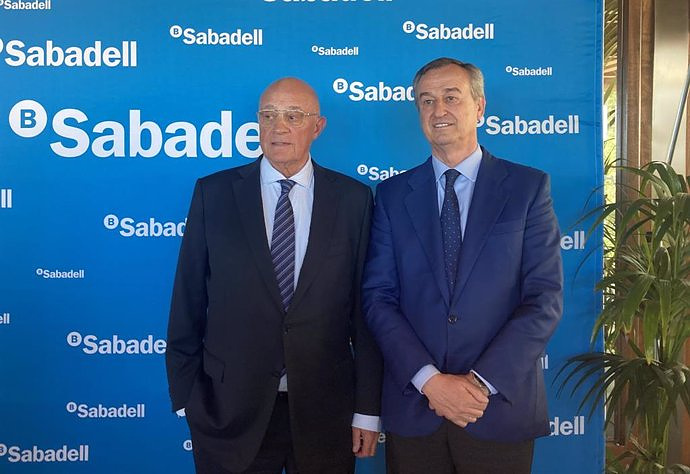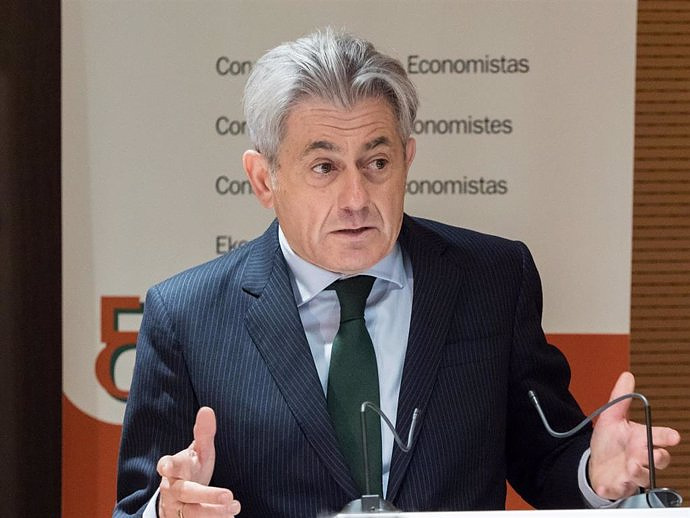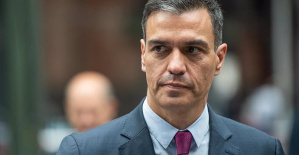The Constitution, coexistence, Catalonia and the problems of the emeritus with justice, protagonists these 10 years
MADRID, 23 Dic. (EUROPA PRESS) -
This Sunday, King Felipe VI faces what will be his tenth Christmas message since his arrival to the throne in June 2014 and he does so at a time of strong political polarization with a legislature that is beginning to take shape after reaping the benefits of the President of the Government, Pedro Sánchez. , the support of Catalan and Basque independentists to govern.
The one on December 24 is undoubtedly the most anticipated message from the monarch each year, since in it he usually takes stock of some of the notable events of the previous twelve months and offers his opinion and advice regarding how he sees the situation in Spain. and how to face the future.
In these ten years since he first faced the tradition of the message on Christmas Eve, the Constitution has been a recurring topic, as has the situation in Catalonia and the problems with justice of his father, Juan Carlos I. , although it has not always expressly mentioned these issues.
In the first of them, he made a firm defense of the need for a "profound regeneration" of collective life, within which "the fight against corruption is an inalienable objective." "We must cut corruption at its roots and without contemplation. The honesty of public servants is a basic pillar of our coexistence in a Spain that we all want healthy, clean," said Don Felipe, at a time when the 'Gurtel case' was in full boiling.
The King then identified as the "great challenges" of Spain "to regenerate our political life, recover the trust of citizens in their institutions, guarantee our welfare State and preserve our unity from plurality", emphasizing that the Constitution "is the guarantee of a democratic, orderly coexistence, in peace and freedom."
A year later, this time from the Royal Palace, and with the legislature also getting underway, Felipe VI claimed that "in constitutional Spain there is room for all feelings and sensitivities, there is room for different ways of feeling Spanish; of being and feeling part of the same political and social community, of the same historical, current and future reality".
And he took the opportunity to send the Spaniards "a message of serenity, tranquility and confidence in the unity and continuity of Spain", at a time when the Catalan independentists already had drawn up a 'road map' for the disconnection of Catalonia, and "of security in the primacy and defense of our Constitution."
"The breaking of the Law, the imposition of an idea or a project of some over the will of other Spaniards" only leads "to decadence, impoverishment and isolation," he warned.
The Catalan issue was once again the center of the 2016 message, which occurred one day after the meeting in the Catalan Parliament in which parties and representatives of civil society defended the holding of a self-determination referendum, although it did not expressly mention neither to Catalonia nor the Constitution.
The monarch made it clear that "violating the norms" that guarantee democracy and freedom for Spaniards "only leads, first, to tensions and sterile confrontations that resolve nothing and, then, to the moral and material impoverishment of society." Likewise, he stressed that "attitudes or behaviors that ignore or despise the rights that all Spaniards have and share for the organization of life in common are not admissible."
But without a doubt, the one delivered in 2017 is one of the ones that generated the most attention, since it occurred after one of his most important speeches so far in his reign, the one on October 3 of that year, two days after the illegal referendum took place, and with the Catalan Parliament newly elected after elections in which the independence bloc prevailed.
Felipe VI urged the new Catalan deputies to embark on a path that does not lead "again to confrontation or exclusion", but rather to recover "serenity, stability and mutual respect", and reminded them that they would have to "face the problems that affect all Catalans, respecting plurality and thinking responsibly about the common good of all.
The King stressed that opting again for confrontation would only generate "discord, uncertainty, discouragement and moral, civic and, of course, economic impoverishment" and he opted to recover "coexistence within Catalan society, so diverse and plural as it is."
In 2018, coinciding with the 40th anniversary of the Constitution, Don Felipe claimed the need to guarantee coexistence in a "settled democracy" like Spain's. Coexistence, which "is always fragile", constitutes "the greatest heritage that we Spaniards have", "the most valuable work of our democracy and the best legacy that we can entrust to the younger generations." "We must prevent it from deteriorating or eroding; we must defend it, care for it, protect it; and do so with responsibility and conviction," he claimed.
A year later, the message came less than a month after the elections that produced the first coalition government in Spain made up of PSOE and Podemos. The King recognized that the challenges ahead were not "simple" but he was convinced that, as on other occasions, they would be overcome.
"Let's trust in ourselves, trust in Spain and let's stay united in the democratic values that we share to solve our problems; without divisions or confrontations that only erode our coexistence and impoverish our future," he said, alluding to Catalonia although without mentioning it.
The 2020 message occurred in the middle of the pandemic, and he dedicated part of his attention to it. But he had as an added interest what the monarch could say about the departure of his father, Juan Carlos I, to the United Arab Emirates, with several investigations opened against him.
As during his proclamation as King, he stressed that moral and ethical principles "bind us all without exceptions" and made it clear that "they are above any consideration, of any nature, even personal or family ones." "This is how I have always understood it, in coherence with my convictions, with the way I understand my responsibilities as head of state and with the spirit of renewal that inspires my reign from day one," he remarked.
Twelve months later, he again made a veiled reference to the situation of the King Emeritus, in the middle of the debate about his possible return to Spain. The institutions, he said, must "always keep in mind the general interests" and be permanently at the service of citizens, in addition to "being in the place that constitutionally" corresponds to them.
Likewise, he maintained, including the Royal Family but without mentioning his father, "we must each assume the obligations entrusted to us; respect and comply with the laws and be an example of public and moral integrity." In a political key, he stressed that "understanding and collaboration are necessary attitudes that dignify institutions" and also "strengthen them, because they generate the trust of citizens."
Last year Felipe VI warned of the three risks that in his opinion threaten democracy in Spain: "division", "the deterioration of coexistence" and "the erosion of institutions". "A country or a society divided or in conflict does not advance, it does not progress or resolve its problems well, it does not generate trust," he warned, once again defending the Constitution as the best antidote.

 Exploring Cardano: Inner Workings and Advantages of this Cryptocurrency
Exploring Cardano: Inner Workings and Advantages of this Cryptocurrency Seville.- Economy.- Innova.- STSA inaugurates its new painting and sealing hangar in San Pablo, for 18 million
Seville.- Economy.- Innova.- STSA inaugurates its new painting and sealing hangar in San Pablo, for 18 million Innova.- More than 300 volunteers join the Andalucía Compromiso Digital network in one month to facilitate access to ICT
Innova.- More than 300 volunteers join the Andalucía Compromiso Digital network in one month to facilitate access to ICT Innova.-AMP.- Ayesa acquires 51% of Sadiel, which will create new technological engineering products and expand markets
Innova.-AMP.- Ayesa acquires 51% of Sadiel, which will create new technological engineering products and expand markets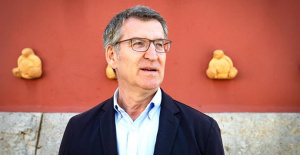 Feijóo, on the UN report: "We are not going to forget either the dictatorship or the terrorist group"
Feijóo, on the UN report: "We are not going to forget either the dictatorship or the terrorist group"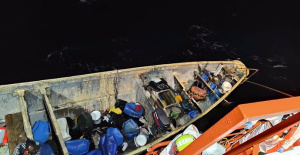 A total of 19,887 migrants have arrived in Spain so far this year, 190% more, 15,982 of them in the Canary Islands
A total of 19,887 migrants have arrived in Spain so far this year, 190% more, 15,982 of them in the Canary Islands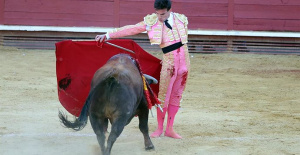 C-LM, Extremadura or Madrid, among the CC.AA that announce the creation of Bullfighting Awards after the suppression of Culture
C-LM, Extremadura or Madrid, among the CC.AA that announce the creation of Bullfighting Awards after the suppression of Culture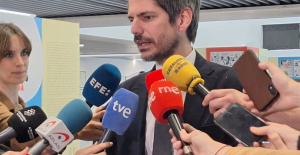 Urtasun faces criticism for suppressing the Bullfighting Prize: "I think they represent a minority"
Urtasun faces criticism for suppressing the Bullfighting Prize: "I think they represent a minority" How Blockchain in being used to shape the future
How Blockchain in being used to shape the future Not just BTC and ETH: Here Are Some More Interesting Coins Worth Focusing on
Not just BTC and ETH: Here Are Some More Interesting Coins Worth Focusing on Faraday UPV presents the 'Origin' rocket to exceed 10 km of flight: "It is the beginning of the journey to space"
Faraday UPV presents the 'Origin' rocket to exceed 10 km of flight: "It is the beginning of the journey to space" The Generalitat calls for aid worth 4 million to promote innovation projects in municipalities
The Generalitat calls for aid worth 4 million to promote innovation projects in municipalities UPV students design an app that helps improve the ventilation of homes in the face of high temperatures
UPV students design an app that helps improve the ventilation of homes in the face of high temperatures Ivace and promotes a less invasive device for the early detection of prostate cancer
Ivace and promotes a less invasive device for the early detection of prostate cancer A million people demonstrate in France against Macron's pension reform
A million people demonstrate in France against Macron's pension reform Russia launches several missiles against "critical infrastructure" in the city of Zaporizhia
Russia launches several missiles against "critical infrastructure" in the city of Zaporizhia A "procession" remembers the dead of the Calabria shipwreck as bodies continue to wash up on the shore
A "procession" remembers the dead of the Calabria shipwreck as bodies continue to wash up on the shore Prison sentences handed down for three prominent Hong Kong pro-democracy activists
Prison sentences handed down for three prominent Hong Kong pro-democracy activists ETH continues to leave trading platforms, Ethereum balance on exchanges lowest in 3 years
ETH continues to leave trading platforms, Ethereum balance on exchanges lowest in 3 years Investors invest $450 million in Consensys, Ethereum incubator now valued at $7 billion
Investors invest $450 million in Consensys, Ethereum incubator now valued at $7 billion Alchemy Integrates Ethereum L2 Product Starknet to Enhance Web3 Scalability at a Price 100x Lower Than L1 Fees
Alchemy Integrates Ethereum L2 Product Starknet to Enhance Web3 Scalability at a Price 100x Lower Than L1 Fees Mining Report: Bitcoin's Electricity Consumption Declines by 25% in Q1 2022
Mining Report: Bitcoin's Electricity Consumption Declines by 25% in Q1 2022 Oil-to-Bitcoin Mining Firm Crusoe Energy Systems Raised $505 Million
Oil-to-Bitcoin Mining Firm Crusoe Energy Systems Raised $505 Million Microbt reveals the latest Bitcoin mining rigs -- Machines produce up to 126 TH/s with custom 5nm chip design
Microbt reveals the latest Bitcoin mining rigs -- Machines produce up to 126 TH/s with custom 5nm chip design Bitcoin's Mining Difficulty Hits a Lifetime High, With More Than 90% of BTC Supply Issued
Bitcoin's Mining Difficulty Hits a Lifetime High, With More Than 90% of BTC Supply Issued The Biggest Movers are Near, EOS, and RUNE during Friday's Selloff
The Biggest Movers are Near, EOS, and RUNE during Friday's Selloff Global Markets Spooked by a Hawkish Fed and Covid, Stocks and Crypto Gain After Musk Buys Twitter
Global Markets Spooked by a Hawkish Fed and Covid, Stocks and Crypto Gain After Musk Buys Twitter Bitso to offset carbon emissions from the Trading Platform's ERC20, ETH, and BTC Transactions
Bitso to offset carbon emissions from the Trading Platform's ERC20, ETH, and BTC Transactions Draftkings Announces 2022 College Hoops NFT Selection for March Madness
Draftkings Announces 2022 College Hoops NFT Selection for March Madness